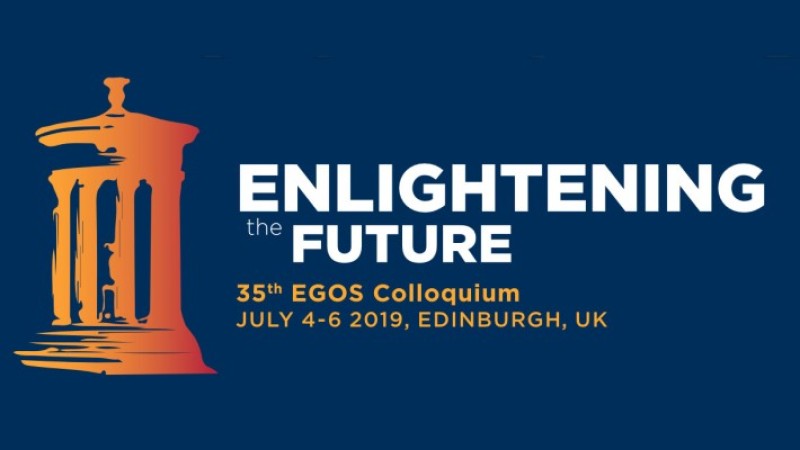Sub-theme 41: Activity Theory and Formative Interventions in Organizing
Call for Papers
As organization studies face today’s global challenges, many scholars are searching for theories and methodologies that
could provide solid foundations for interventionist and activist research. Cultural-historical activity theory (CHAT) and
its methodology of formative interventions offer such an alternative in constructive dialogue and debate with related approaches
such as critical realism (Allen et al., 2013), actor-network theory and other practice-based approaches in organization studies
(Miettinen et al., 2012).
Activity theory is widely applied in studies of organizational change, organizational
learning and knowledge creation, agency and organizational authorship, and information systems in organizations (Allen et
al., 2011). Activity theory is increasingly used as a framework in intervention studies such as Change Laboratories, aimed
at supporting and understanding complex emancipatory transformations in heterogeneous coalitions of formal organizations,
communities and social movements (Sannino & Engeström, 2017).
In activity theory, materiality is understood
through the lens of productive actions to create objects of use value. This comes close to the idea of material agency suggested
by Malafouris (2013). However, material engagement is more than an encounter between a subject and a material object. Such
encounters are embedded in historically evolving activity systems, mediated by instruments, rules, communities and divisions
of labor (Vetoshkina et al., 2017).
Being a dialectical approach in search of movement and development, activity
theory looks for inner contradictions in activity systems as the source of movement and change. Developmentally significant
contradictions cannot be effectively dealt with merely by combining and balancing competing priorities. Seeing contradiction
as an inconsistency or competition between separate forces or priorities corresponds to the general mechanistic tendency to
replace inner systemic contradiction with outer, external oppositions. Inner contradictions need to be creatively and often
painfully resolved by working out a new “thirdness,” something qualitatively different from a mere combination or compromise
between two competing forces. Contradictions are historical and need to be traced in their real historical development (Engeström
& Sannino, 2011; Foot & Groleau, 2011).
Activity theory sees agency as action, not as a trait. Transformative
agency may be understood as breaking away from the given frame of action and taking the initiative to transform it. The generative
mechanism behind transformative agency is called double stimulation (Sannino, 2015). Human beings may break out of a paralyzing
conflict of motives by employing material artifacts as second stimuli. Studies of double stimulation in formative organizational
interventions are an important focus on current studies based on activity theory.
Formative interventions
based on activity theory are increasingly involved in creating alternatives to capitalism in attempts to deal with the grand
challenges of poverty and ecological crisis. Such interventions often encompass heterogeneous organizational coalitions, thus
expanding the unit of analysis and taking steps toward 4th generation activity theory.
This sub-theme
invites contributions focused on analyses of materiality, contradictions and transformative agency in different organizational
settings and cultural contexts. We especially encourage the submission of papers reporting on formative interventions in heterogeneous
organizational coalitions involved in creating alternatives to capitalism.
References
- Allen, D.K., Brown, A., Karanasios, S., & Norman, A. (2013): “How should technology-mediated organizational change be explained? A comparison of the contributions of critical realism and activity theory.” MIS Quarterly, 37 (3), 835–854.
- Allen, D.K., Karanasios, S., & Slavova, M. (2011): “Working with activity theory: Context, technology, and information behavior.” Journal of the Association for Information Science and Technology, 62 (4), 776–788.
- Engeström, Y., & Sannino, A. (2011): “Discursive manifestations of contradictions in organizational change efforts: A methodological framework.” Journal of Organizational Change Management, 24 (3), 368–387.
- Foot, K., & Groleau, C. (2011): “Contradictions, transitions, and materiality in organizing processes: An activity theory perspective.” First Monday, 16 (6), June 6, 2011, http://firstmonday.org/ojs/index.php/fm/article/view/3479/2983
- Malafouris, L. (2013): How Things Shape the Mind. Cambridge, MA: The MIT Press.
- Miettinen, R., Paavola, S., & Pohjola, P. (2012): ”From habituality to change: Contribution of activity theory and pragmatism to practice theories.” Journal for the Theory of Social Behaviour, 42 (3), 345–360.
- Sannino, A. (2015): “The principle of double stimulation: A path to volitional action.” Learning, Culture and Social Interaction, 6, 1–15.
- Sannino, A., & Engeström, Y. (2017): “Co-generation of societally impactful knowledge in Change Laboratories.” Management Learning, 48 (1), 80–96.
- Vetoshkina, L., Engeström, Y., & Sannino, A. (2017): “On the power of the object.” In: J. Sandberg, L. Rouleau, A. Langley & H. Tsoukas (eds.): Skillful Performance: Enacting Capabilities, Knowledge, Competence, and Expertise in Organizations. Oxford: Oxford University Press, 73–102.


